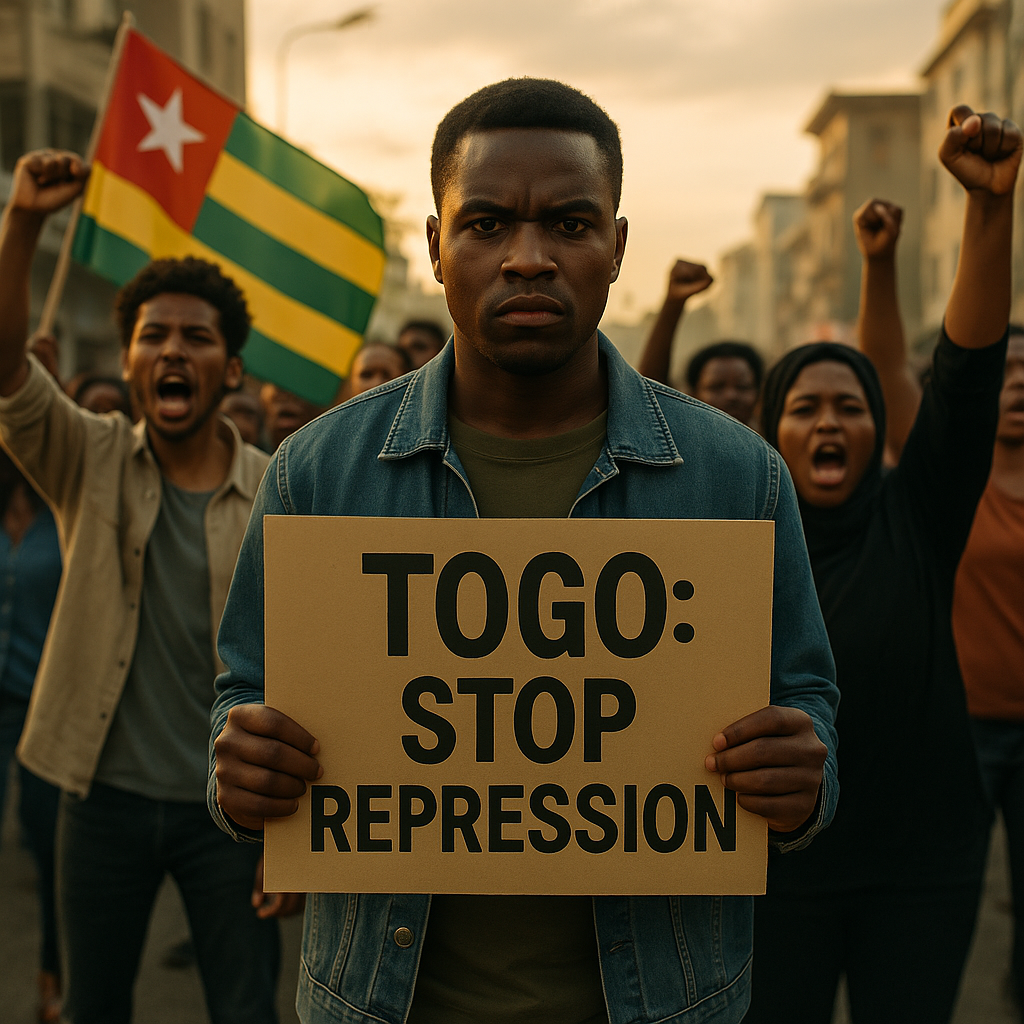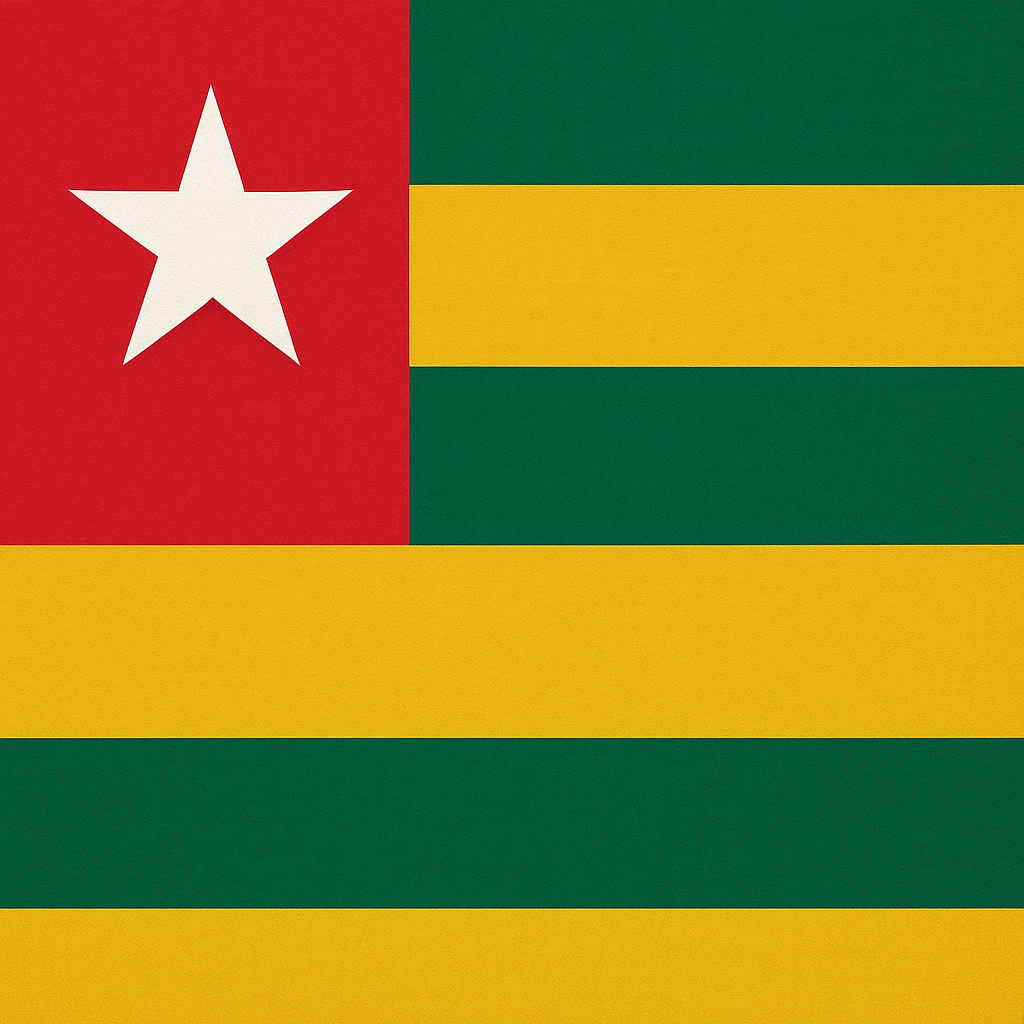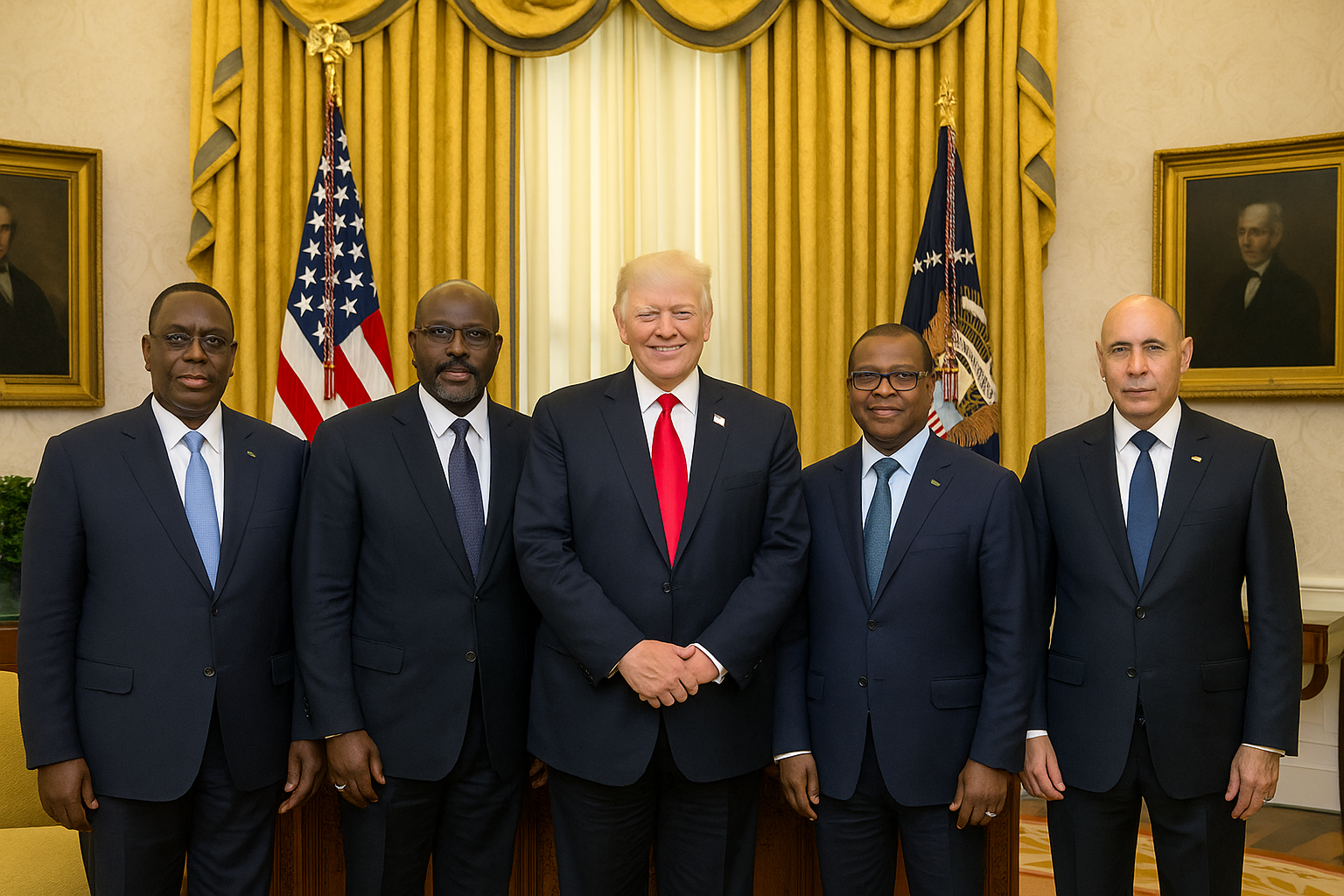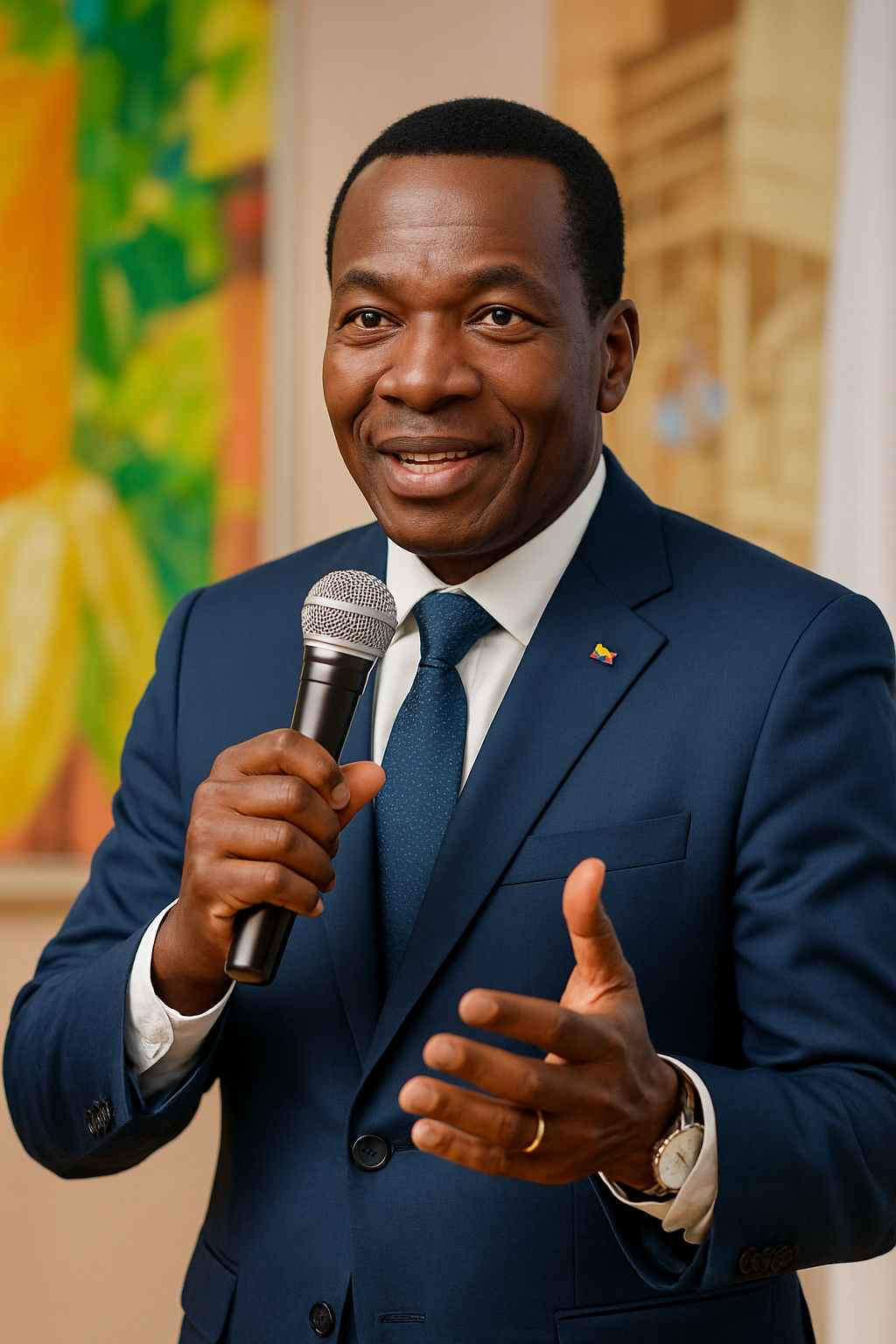Lomé, Togo – July 13, 2025 – Political tensions are mounting in Togo as the government intensifies its crackdown on dissent ahead of planned demonstrations scheduled for July 16–17. This week, authorities issued international arrest warrants for members of the Mouvement du 6 Juin (M6.6)—a citizen-led coalition of activists, bloggers, and artists critical of President Faure Gnassingbé’s regime.
The Ministry of Justice cited “incitement to insurrection” and “threats to state security” as the basis for the charges, targeting several individuals living abroad, including prominent figures from the Togolese diaspora.
Crackdown on Cultural Voices: The Case of Aamron
Among the most high-profile cases is that of Aamron, the popular Togolese rapper and activist (real name Tchala Essowè Narcisse), who was detained on June 27 after calling for peaceful protests. His arrest drew widespread condemnation from human rights organizations.
Fellow detainee Bertin Bandiangou, a student union leader, described scenes of torture and mistreatment while in custody.
“They beat him with ropes, slapped him, and filmed the abuse. This is intimidation,” he told local media.
Aamron was released on July 5 after nearly 10 days in detention but has remained silent since.
Death of a Teenager Raises Alarm
Public outrage further intensified following the death of 15-year-old Jacques Koutoglo, who went missing during a protest on June 26. His body was later found in the Bè Lagoon in Lomé. Official reports cite drowning as the cause of death, but the presence of bruises and eyewitness claims have prompted calls for an independent investigation.
Amnesty International has reported that at least seven bodies have been recovered from nearby rivers in the past month, some showing signs of beatings and gunshot wounds. Several families have also reported missing relatives following protests.
Media Censorship and Constitutional Controversy
On June 16, the Haute Autorité de l’Audiovisuel et de la Communication (HAAC) suspended broadcasts of international media outlets RFI and France 24 for three months, accusing them of biased coverage of the protests and the constitutional reforms.
In May 2025, the Togolese National Assembly adopted controversial constitutional changes, including a provision that allows the president to become President of the Council of Ministers, a position with no term limits. Critics have labeled the move a “constitutional coup,” arguing it paves the way for indefinite rule by the Gnassingbé family, which has governed Togo for over five decades.
What’s Next?
The M6.6 movement has confirmed its intention to proceed with protests on July 16 and 17, despite the threats of repression. Security forces have been deployed across Lomé and other major cities, and access to social media platforms has reportedly been throttled intermittently in recent days.
Civil society organizations, diaspora groups, and international observers are urging calm and restraint, while also calling on the Togolese government to uphold the constitutional rights of freedom of expression and peaceful assembly.
Editorial Note
The situation in Togo remains fluid, with growing concerns over human rights violations, suppression of dissent, and lack of democratic accountability. This ongoing unrest reflects a broader wave of political mobilization across West Africa, where youth-led movements are increasingly challenging entrenched power structures and demanding meaningful reform.



